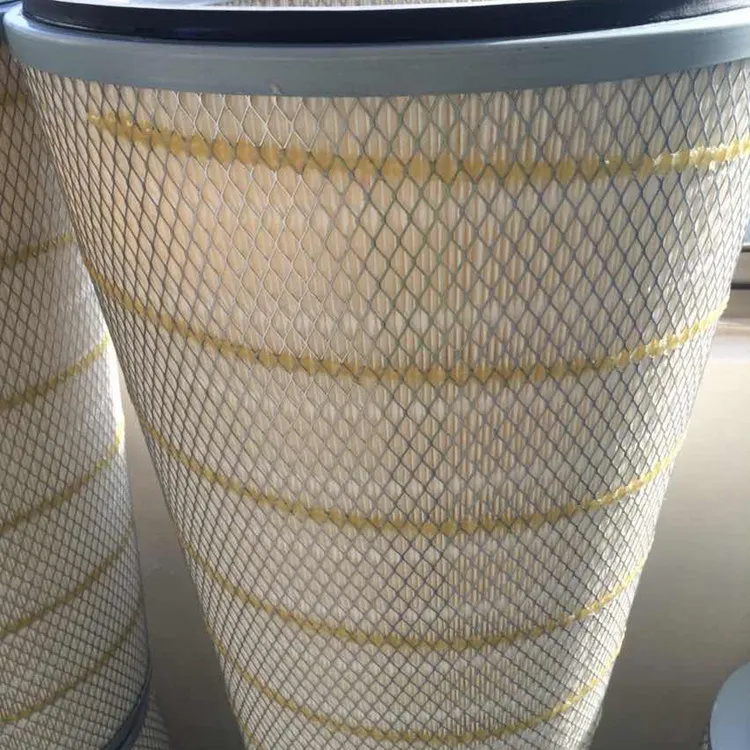 Tel:
+8615930870079
Tel:
+8615930870079
12月 . 11, 2024 10:01 Back to list
Efficient Cartridge Vacuum Filter Systems for Optimal Liquid Filtration Solutions
Understanding Cartridge Vacuum Filters A Comprehensive Overview
In the realm of industrial filtration, the cartridge vacuum filter has emerged as a critical component for separating solids from liquids. This technology has found applications in various sectors, including food and beverage, pharmaceuticals, wastewater treatment, and more. Understanding the workings, benefits, and applications of cartridge vacuum filters can help industries enhance their filtration processes and improve overall efficiency.
What is a Cartridge Vacuum Filter?
A cartridge vacuum filter is a filtration system that uses a series of cylindrical filter cartridges to separate particulate matter from liquids. The basic working principle involves the creation of a vacuum that draws the liquid through the filter media housed within the cartridges. As the liquid passes through, solids are retained on the surface of the cartridges, while the purified liquid is collected on the other side.
The design of cartridge vacuum filters allows for high filtration efficiency, as the surface area provided by multiple cartridges can significantly enhance the filtering process. These filters can accommodate various filter media, including cloth, synthetic materials, and paper, making them versatile for different applications.
How Does It Work?
The operation of a cartridge vacuum filter can be summarized in a few key steps
1. Liquid Introduction The slurry or liquid mixture containing solids is introduced into the filter tank. 2. Vacuum Creation A vacuum pump generates a negative pressure inside the filter system, creating a suction effect.
3. Filtration Process As the vacuum draws the liquid through the filter cartridges, solids are trapped on the filter media. The liquid continues to flow through the filter, resulting in the separation of solids.
4. Cleaning Cycle Depending on the specific design, cartridge filters may require periodic cleaning or replacing of cartridges. Some systems incorporate automatic backwashing, which uses clean liquid to flush out the accumulated solids.
5. Collection of Clean Liquid The filtered liquid is collected for further processing or use, while the trapped solids are typically removed at regular intervals.
Advantages of Cartridge Vacuum Filters
Cartridge vacuum filters offer several benefits
cartridge vacuum filter

- High Filtration Efficiency The multi-cartridge design allows for extensive surface area, leading to efficient solid removal and high-quality filtrate.
- Versatility These filters can handle a wide range of liquid compositions and solid sizes, making them suitable for diverse applications.
- Compact Design Cartridge vacuum filters have a smaller footprint compared to other filtration systems, making them ideal for facilities with space constraints.
- Ease of Maintenance Cartridge replacement and cleaning processes are often straightforward, minimizing downtime and operational disruptions.
- Cost-Effective With their efficiency and effectiveness, these filters can lead to lower operational costs in the long run.
Applications of Cartridge Vacuum Filters
Cartridge vacuum filters are employed across various industries for different purposes
- Food and Beverage Used for clarifying juices, beer, and other beverages, ensuring that products meet stringent quality standards.
- Pharmaceuticals Essential for filtering solutions in drug production, providing clean processes critical for patient safety.
- Wastewater Treatment Effective in removing solids from wastewater, aiding in regulatory compliance and environmental protection.
- Chemical Processing Utilized in the production of chemicals, where separation and purification are necessary for quality control.
Conclusion
In summary, cartridge vacuum filters represent a sophisticated and efficient solution for solid-liquid separation. Their high efficiency, versatility, and ease of maintenance make them invaluable across various industries. As industries continue to advance in technology and production techniques, cartridge vacuum filters will remain a key component in ensuring quality, efficiency, and environmental compliance in filtration processes. Understanding the intricacies of this filtration technology can aid businesses in making informed decisions that enhance their operational capabilities.
-
Nano Fiber Technology: Revolutionizing Cartridge Dust Collector FiltersNewsAug.06,2025
-
How Activated Carbon Air Cartridges Eliminate OdorsNewsAug.06,2025
-
Dust Filter Cartridge Handling Fine Particulate MatterNewsAug.06,2025
-
Cartridge Dust Collector Filter for Welding Fume ExtractionNewsAug.06,2025
-
Activated Carbon Filter Cartridge Effectiveness Against VOCsNewsAug.06,2025
-
Activated Carbon Air Filter Cartridge Benefits ExplainedNewsAug.06,2025

 Email:
Email:





